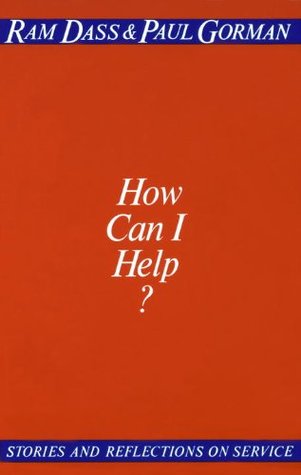More on this book
Kindle Notes & Highlights
the Witness observes how this play of motives and needs produces doubt, yet another component of burnout. We doubt ourselves because the messages of our heart and our mind seem so at odds … or because we’re not really at peace with our reasons for our actions in the first place … or because we seem to need so much in return from what we thought was supposed to be a “selfless” activity. We hear ourselves thinking, “Maybe this isn’t the right place after all” … “Maybe I don’t have anything left to offer” … “Maybe I need to be helping myself.” A thousand maybes, which taint each act and undermine
...more
some of the factors that wear us down we seem to have brought in with us at the outset. Along with our clean shirt, good intentions, and eagerness to serve, we’ve carried to work a number of needs and expectations. Sometimes burnout is simply our motives coming home to roost.
if we can stay grounded in the essential unjudging character of the Witness … if we can just hold on and listen … we can draw some useful conclusions and move further towards a greater sense of perspective.
By dispassionately acknowledging our personal needs, we lessen their grip on our actions. More and more we simply observe rather than identify with our motives. It’s not so much that we’re trying to push them away; denial buys us no peace. Rather, we’re loosening our attachment to our motives by stepping behind them. It’s not that they aren’t at play; we’re simply offstage watching. As this happens, our motives seem to lose some of the mischievous, unpredictable power of their shadowy existence. From this vantage point we’re more able to catch sight of some need or expectation as it strives to
...more
we’ve got to get them to see: “My wife is so depressed. I really have to take her aside after the kids are asleep and show her what she’s doing to herself.”
As we watch ourselves going off to work, then, it becomes a little like reading The Little Engine That Could. Up the mountain: “I think I can, I think I can, I think I can.” Coming down: “I thought I could, I thought I could, I thought I could.” Model train, maybe … but always climbing mountains … likely to run down sooner or later. But all this can be witnessed. The same observation that made it possible for us to note our reasons for acting can catch us in the process of identifying ourselves as the actor. We recognize how we’re “taking things personally.” We see how our self-esteem is
...more
It’s not always our efforts that burn us out; it’s where the mind is standing in relation to them. The problem is not the work itself but the degree of our identification with it. It’s doers who burn out. But we needn’t always be doers. For as the process of witnessing becomes stronger—as we stay with it despite our reactions to what is being revealed—a subtle shift begins to take place in the direction of perspective and freedom. If we persevere, our identification with the Witness grows while our attachment to being the doer seems to fall away. Quite remarkably, moreover, we also notice that
...more
We can enjoy the Witness’s revelations about the law and order of action even as we participate in the acting. It is as if we are functioning happily on two planes of consciousness at once. As a result, there can be peace where there was once agitation, confidence where there was doubt, trust where there was defensiveness and guilt, and abundant energy where there was burnout.


